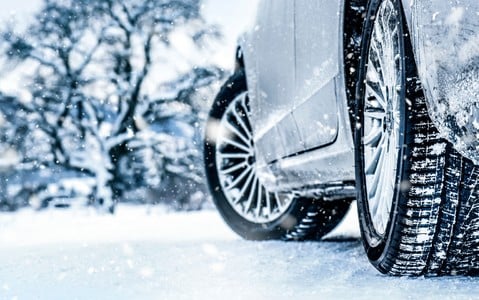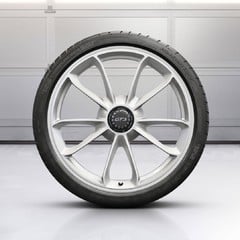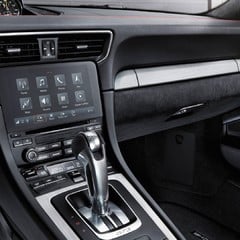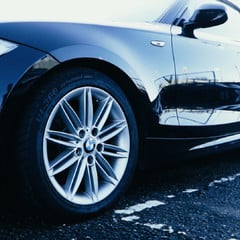How to Prepare Your Car for Winter
Read the important safety checks you should make before it gets cold and dark...
We are all feeling it: the temperature dropping and the days getting shorter, both signs that winter is close. With it comes the challenge of driving in cold, dark, and icy conditions. You don’t want to be that person who gets stranded on the side of the road or risks an accident because of poor vehicle maintenance.
That’s why it's important to prepare your car for the winter and make sure it’s ready to face the unpleasant weather. Here are 5 simple checks you can make to ensure your car is ready to run smoothly and safely during this frosty time of year.
5 winter car safety checks
1. Check your fluids
One of the first things you should do before the weather turns is check your car’s fluids and top them up if needed. This includes:
-
Engine oil: With the purpose of lubricating your engine and preventing it from overheating, you should check your oil level regularly. Prop up the bonnet, pull out the dipstick, wipe it clean, re-dip, and ensure the levels are between the minimum and maximum marks.
-
Coolant: A mix of water and antifreeze, coolant keeps your engine from freezing and protects it from corrosion. Make sure your level of coolant is between the minimum and maximum marks on the tank.
-
Screenwash: It helps you to keep your windscreen clear of dirt, ice, and rain, and with the reduced visibility at this time of year, it's especially important to keep this topped up. Ensure you are using a screenwash that can withstand freezing temperatures.
2. Check your tyres
Your tyres are your car’s only contact with the road, so they need to be in good condition and properly inflated, especially in winter when the roads are wetter and potentially icy. Check your tyres for:
-
Tread depth: The legal minimum tread depth for cars in the UK is 1.6mm, but in winter it’s advisable to have at least 3mm. You can check your tread depth by using a 20p coin: slot the coin into the grooves of your tyre — if you can see the outer band of the coin, your tyres are below the limit and need changing.
-
Air pressure: In cold temperatures air condenses which often leads to a decrease in tyre pressure in the winter. Therefore, it's important to check your tyre pressure at least once a month and keep it inflated to the level recommended in your owner's manual.
-
Damage: It’s also a good habit to check your tyres for any signs of wear and tear, such as cracks, bulges or punctures. If you notice any, you should replace your tyres as soon as possible.
3. Check your battery
In the winter your car battery is more likely to fail as the cold weather reduces its capacity and performance. The last thing you want is a dead battery just as you set off to work in the morning. To prevent this, you should:
-
Test your battery: Using a voltmeter you can measure the voltage of your car battery. A fully charged battery should have a voltage of around 12.6 volts. If yours is below 12 volts, you may need to recharge or replace it.
-
Clean your battery: Check your battery terminal for any corrosion or dirt that could affect the connection. You can use a cloth dipped in water and baking soda to clean them.
-
Drive regularly: If you don’t drive your car very often, then there’s a chance that your battery could go flat. To avoid this, you should drive it at least once a week for about 15 minutes to keep the battery charged.
4. Check your lights
Your lights are essential for visibility and safety in the winter, especially when it gets dark early or when there's fog, snow or heavy rainfall. Make sure to check all your lights, including headlights, tail lights, brake lights, indicators, fog lights, and reversing lights, to make sure they are working. Replace any bulbs that are dying out.
5. Check your brakes
Like your lights, brakes are vital for your safety and the safety of others on the road. In winter, poor driving conditions can leave the roads slippery which significantly decreases your stopping distance. As recommended in the highway code, in wet weather you should double the gap between you and the car in front from at least 2 seconds to a minimum of 4 seconds.
Look out for any signs of problems such as noise or pulling to one side. If you notice any of these issues, don’t ignore them, get them checked out by a professional pronto.
1 Stop Car Sales servicing
If your car is in need of a winter health check then speak to us about our servicing options. Our expert technicians are trained to work on all makes and models, so your vehicle is in safe hands. Whether you need the tyres replacing, new brake pads fitted, or an oil change, we've got you covered. Get in touch to speak with our service team.
Get ready to hit the road!
The process of going through each of these checks can be extremely time-consuming but is essential for remaining safe on the road. Rest assured, for any used car you purchase from us here at 1 Stop Car Sales, we’ll take the time to conduct a 114-point pre-delivery inspection covering all the essential checks before you set out onto the road. Take a look at our online showroom today to find your next used car!









